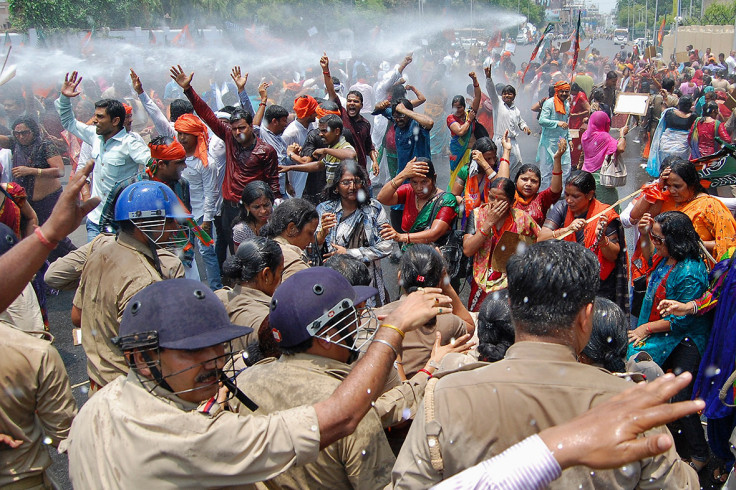BBC ignores India's request and airs controversial film on Delhi gang-rape

The BBC went ahead and aired the controversial documentary on the Delhi gang-rape rape case on Wednesday (4 March) night despite requests by the Indian government not to, following a court ban.
The film "India's Daughter" has been viewed by many as a media forum for a brutal rapist to justify his act.
The BBC had planned to air the film on 8 March to mark International Women's Day but advanced the date following objections in India, saying the film will allow viewers to see "incredibly powerful documentary at the earliest opportunity".
It claimed that the film had handled the issue "responsibly".
The documentary filmmaker Leslee Udwin appealed to Prime Minister Narendra Modi to view the documentary, which, she said, was a "gift to India", before any action was taken on it.
The film while claiming to sensitise audiences to the brutal rape of Nirbhaya has been termed on social media as insensitive and amounting to contempt of court.
"This harrowing documentary, made with the full support and cooperation of the victim's parents, provides a revealing insight into a horrific crime that sent shock waves around the world and led to protests across India demanding changes in attitudes towards women," the BBC said in a statement.
However, Nirbhaya's father has been quoted after the airing as saying: "This is an insult to the country if the channel airs it despite ban."
Court ban
The Delhi Police has issued a public notice informing the public that the court of chief metropolitan magistrate has passed an order that the interview of one of the convicts in the gang rape case should not be uploaded/transmitted/aired in any form.
Among other things, the film interviews one of the rapists, Mukesh Singh, who was driving the bus in which the 23-year-old paramedical student was brutally gangraped by six men on 16 December, 2012.
Singh has made derogatory statements against women, the police said.
Instead of showing remorse, he says the whole incident was the girl's fault. She should not have resisted and fought back when she was being raped, he said. That way, she would not have been killed.
Singh's advocate M L Sharma told the Times of India in what has shocked the nation: "If you keep sweets on the street then dogs will come and eat them. Why did Nirbhaya's parents send her with anyone that late at night? He was not her boyfriend. Is it not the parents' responsibility to keep an eye on where she goes and with whom?"
The advocate has also been interviewed for the documentary and stands by all that he said in it.
Outrage in social media
Social media has seen outrage over the documentary viewed as a platform to justify and explain such a heinous act that shocked the nation and the globe.
Some have welcomed the film as a freedom of expression that sensitises the viewer to the brutal crime.
More contentious questions are also being raised on how the filmmaker was allowed to interview rape and murder convicts, sentenced to death by a court.
Though granted by the earlier home minister Sushil Kumar Shinde, the present home minister Rajnath Singh has said that the permission given to the documentary maker was conditional and there were many violations.
"Under no circumstances will this documentary be allowed to be broadcast... government has taken necessary action and secured an order restraining the telecast of the film," Singh told parliament.
© Copyright IBTimes 2024. All rights reserved.





